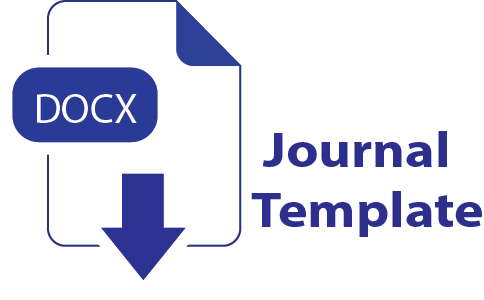STAKEHOLDER INTERESTED ORIENTATION IN TRADITIONAL MARKET REVITALIZATION POLICIES IN SITUBONDO DISTRICT
Abstract
References
Bungin. B. 2012. Analisis Data Penelitian Kualitatif. Raja Grafindo Persada. Jakarta
Crosby, B.L. 1992. Stakeholder Analysis: A vital tool for strategic managers. Technical Notes, No. 2. Agency for International Development, Washington DC.
Dwiyanto,A.2004.Reorientasi Ilmu Administrasi Publik: Dari Government ke Governance. Di sampaikan dalam acara pengukuhan guru besar Prof. Dr Agus Dwiyanto, MPA pada tanggal 21 agustus
Estu Suryowati. 2017. Berapa pasar tradisional yang sudah dibenahi pemerintah pada 2016?. Downloaded December.2017. https://ekonomi.kompas.com/read /2017/01/05/074400126/ beberapa.pasar.tradisionl
Gonzalez, S and P. Waley. 2013. Traditional Retail Markets: The New Gentrification Frontier? Antipode: a radical journal of geography, 45
(4). 965 - 983. ISSN 0066-4812.
Gonzalez, S and Waley, P. (2013). Traditional Retail Markets: The New Gentrification Frontier? Antipode: a radical journal of geography, 45 (4). 965 - 983. ISSN 0066-4812.
Hetifah, S.J Sumarto. (2003) Inovasi, Partisipasi dan Good Governance : 20 Prakarsa Inovatif dan Partisipatif Di Indonesia. Jakarta, Yayasan Obor Indonesia Kementrian Perdagangan. 2016. Konsep Revitalisasi Pasar Rakyat. ttps://ews.kemendag.go.id/revitalisasi/KonsepRevitalisasi.aspx
Iqbal, Muhammad. 2007. “Analisis Pemangku Kepentingan dan Implementasinya dalam Pembangunan Pertanian”. Jurnal Litbang Pertanian, Vol. 26 (3), pp 89-99.
Kementrian Perdagangan.2016. Konsep Revitalisasi Pasar Rakyat. https://ews.kemendag.go.id/revitalisasi/KonsepRevitalisasi.aspx
Nugroho, Hermawan Cahyo; Soesilo Zauhar; dan Suryadi. (2014) Koordinasi Pelaksanaan Program Pengembangan Kawasan Agropolitan di Kabupaten Nganjuk. Jurnal J-PAL, 5(1) : 12-22.
Miles, Mattew B dan Amichael Huberman. 2007. Analisis Data Kualitatif Buku Sumber tentang Metode-Metode Baru. Terjemahan Tjetjep Rohendi Rohisi. Jakarta: Universitas Indonesia.
Miles, Metthew B,A. Michael Huberman and Johnny Saldana. (2014). Qualitative data Analysis, A Methods Sourcebook, Sage Publications, Inc.
Peraturan Presiden. 2007. No.112. Penataan dan Pembinaan Pasar Tradisional Pusat Perbelanjaan dan Toko Modern. Jakarta: Peraturan Presiden Republik Indonesia.
Schwab, B. and D. Kubler. 2001. Metropolitan Governance and the ‘democratic
deficit: Theoretical Issues and Empirical Findings”, Paper in Conference
Area-based initiatives in contemporary urban policy, Copenhagen, May 2001,Available Online:
http://www.sbi.dk/eura/workshops/papers/workshop2/schwab.pdf
Scheemer, Kammi. (2000) Stakeholder Analysis Guidelines, Policy Toolkit for Strengthening Health Sector Reform. USA, LACHSR Health Sector Reform Intiative
Sugiyono. 2007. Memahami Penelitian Kualitatif. Bandung: CV. Alfabeta.
Full Text: PDF


CALL FOR PAPERS
DINAMIKA GOVERNANCE: JURNAL ILMU ADMINISTRASI NEGARA
VOLUME 16, NO. 1 – EDISI APRIL 2026
Dinamika Governance mengundang para akademisi, peneliti, praktisi, dan mahasiswa untuk mengirimkan naskah orisinal hasil penelitian atau pemikiran kritis dalam bidang Ilmu Administrasi Publik dan Tata Kelola Pemerintahan.
Kami mencari kontribusi ilmiah yang menawarkan perspektif baru, solusi inovatif, dan analisis mendalam terhadap tantangan tata kelola di tingkat lokal, nasional, maupun global.
Fokus dan Ruang Lingkup (Scope)
Kami menerima naskah yang berkaitan dengan (namun tidak terbatas pada) topik berikut:
- Inovasi Pelayanan Publik: Digital governance, E-Government, dan kualitas pelayanan.
- Manajemen Sektor Publik: Reformasi birokrasi, SDM aparatur, dan manajemen kinerja.
- Kebijakan Publik: Analisis, implementasi, dan evaluasi kebijakan strategis.
- Tata Kelola Lokal: Otonomi daerah, pembangunan desa, dan kepemimpinan publik.
- Governance & Masyarakat: Akuntabilitas, transparansi, partisipasi publik, dan kolaborasi aktor (Collaborative Governance).
Ketentuan Penulisan
- Orisinalitas: Naskah belum pernah dipublikasikan di media lain dan bebas dari unsur plagiarisme (maksimal kemiripan 20% melalui Turnitin).
- Format: Naskah ditulis dalam Bahasa Indonesia atau Bahasa Inggris yang baik dan benar.
- Struktur: Mengikuti kaidah IMRAD (Introduction, Method, Result and Discussion, Conclusion, References).
- Sitasi: Wajib menggunakan aplikasi manajemen referensi seperti Mendeley atau Zotero dengan gaya sitasi APA Style 7th Edition.
- Template: Naskah harus menyesuaikan dengan template resmi yang tersedia di website jurnal.
Lini Masa Penting (Deadlines)
Untuk penerbitan edisi mendatang, silakan perhatikan jadwal berikut:
- Batas Akhir Pengiriman (Submission) = 31 Maret 2026
- Proses Review (Peer-Review) = Februari – April 2026
- Pemberitahuan Penerimaan (LoA) = 1 April 2026
- Publikasi Online (First Online) = 30 April 2026
Prosedur Pengiriman
Pendaftaran dan unggah naskah dilakukan secara daring melalui sistem OJS (Open Journal System) kami di:
👉 Register: Klik Tautan Ini
Catatan: Pastikan Anda telah melakukan registrasi sebagai "Author" sebelum mengunggah naskah.
Kontak Informasi:
Jika ada pertanyaan lebih lanjut, silakan hubungi tim redaksi melalui:
- Email: jurnaldinamika@upnjatim.ac.id
- WhatsApp: O85111620261 (Weekday)
- Website: Dinamika Governance: Jurnal Ilmu Administrasi Negara










